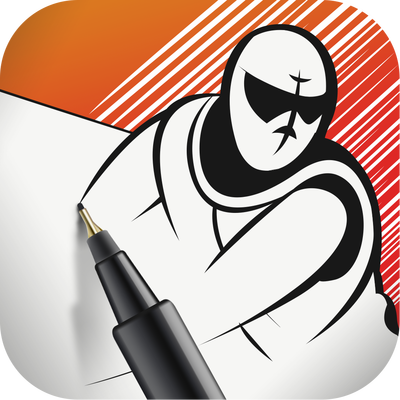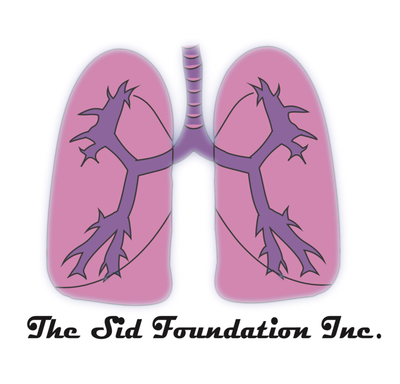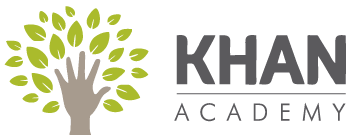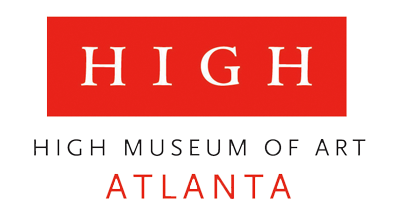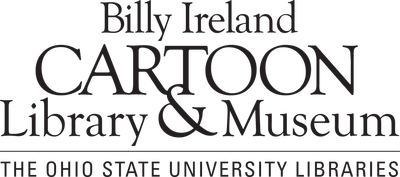|
Ricky Can0 is a writer and filmmaker. He worked with us to design the cover of his first book Identical: The Switch. Identical is hybrid novel which incorporates qualities of a screenplay and traditional novel in a single thriller filled with twists and turns. Ricky is a creator on the come up with many stories to tell. Checkout the following interview on Instagram or YouTube where we discuss his creator journey, how to self-publish on Amazon and of course IP development. Find Ricky on Ig: @ricky_thewriter_cano link: https://www.instagram.com/ricky_thewriter_cano?igshid=YzAwZjE1ZTI0Zg== 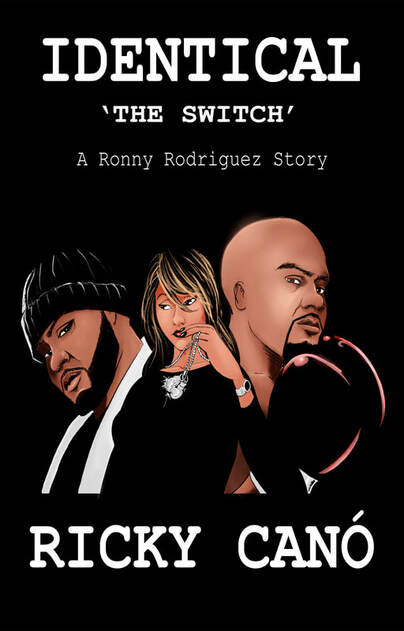
Ronny Rodriguez had it all. He was on top of the world. All the boxing rankings had him at the top of the pound-for-pound list. The Bronx native was the prince of New York and had the woman of his dreams by his side. With plans to propose to his life's love, everything changed in the blink of an eye.
Now, Ronny Rodriguez is a former World Champion. He lost the love of his life; he’s been in prison; his residency has been revoked & he’s been deported. Eight years after the incident, he’s back in the States on a quest to find out what truly happened on that fateful night. Unwilling to accept his current life, his burning desire for the truth has led him to uncover a far more sinister plot than anyone could have imagined and those willing to kill to protect it. Identical: The Switch is available on Amazon.com in hardcover, paperback and digital formats.
0 Comments
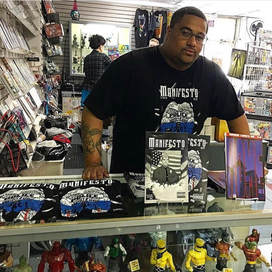
Kalani Caraballo
"I’M SHOWING PEOPLE THAT THROUGH MY DETERMINATION AND HARD WORK THINGS CAN HAPPEN. I’M HAPPY TO BE ABLE TO INSPIRE, LIKE OTHERS HAVE INSPIRED ME." @DummieComicsInc @K.Caraballo www.Gumroad.com/DummieComicsInc Bio: Kalani Caraballo is a writer based out of Kearny, New Jersey. He has been producing and writing comic books since early 2016. Titles such as Home, Manifesto, Pistol Grip, and the newly released title Messenger. Along with his Editor/Fiancee Chrissy Torres, they operate their own publishing company Dummie Comics Inc. Where are your from? I was born in Honolulu, Hawaii. Both my parents are from the greatest island on Earth, Puerto Rico. My family left Hawaii for Newark, New Jersey when I was three years old. My Dad and Mom divorced when I was four, and my Mom moved my brother and I to Kearny, New Jersey where I still currently reside. Where did you grow up? My beginning years I started out in Hawaii, Newark, and my formative years I was in Kearny. How did your experiences affect your writing? In general, my life is in my writing. Through my writing you can see my vision and sometimes my opinion on certain things. I know my experiences definitely helped me write Home. At the same time some of my father’s experiences made it into Manifesto. So nothing is spared honestly. I’m growing in life through my writing. You and your partner run your own publishing company Dummie Comics Inc. What inspired you to start your own business? I have to say it started with the idea of just wanting to write and publish a comic. Originally the idea was just to do one. My first comic I wrote was this Hip Hop, Alien story, titled Last of a Dying Breed. After commissioning an artist to illustrate Last of a Dying Breed, I had started writing Home. I ended up losing interest in Last of a Dying Breed, and solely focused on Home. I completed the full series of Home in a span of two weeks. While I was finishing Home, the idea of Manifesto came to me. After completing Home, I immediately started writing Manifesto. I realized I had two comic series on my hand. At that moment it became about Dummie Comics the brand, not me. The mission for Dummie Comics Inc to inspire others to do things that other people might have told them that they could not ever accomplish. Please share why you feel this is an important mission and how your comics fulfill this mission. When I originally told people about me wanting to get into the comic business everyone I knew laughed at me. They said things like, “You can’t draw”, “How are you going to compete with characters that have a 75 year legacy?”, we heard it all. I want to inspire people to give themselves a chance. I knew if I didn’t trust my gut feeling, and listened to those people, I wouldn’t be where I’m at today. Everyday I wake up, and push this brand as hard as I can, and the results show. This isn’t a little comic thing or a hobby. Slowly but surely things are happening. I’m showing people that through my determination and hard work things can happen. I’m happy to be able to inspire, like others have inspired me. Keep going! And only listen to yourself. What type of stories do you like to make comics about? To be honest it depends on my mood when I pick up the pen to write. It also depends on the character I am writing for at that moment. I tend to enjoy writing stuff with a lot of grittiness to it. What’s your process? Elaborate on how you work through your projects. How do you break up your time for your projects at different stages? My process is simple. Usually when I come up with an idea for a comic I like to know how I’m going to end it, so I usually write the ending first. From there everything comes naturally. I’ll envision the entire story, and flesh out what I want to see on each page. Then I’ll begin my dialogue. Once I complete the script, and we green light the script to be illustrated, I’ll go through the entire script one more time, and make any corrections, then I’ll send it to my Editor and partner Chrissy Torres. She’ll make her corrections, and then send it back to me for my approval. Once completed, we send it to our illustrator Frank Castro, and then play the waiting game. While an issue is being illustrated, I’ll start working on another script. Sometimes for the same character, other times for another. It’s all about balance, and lucky for me, each of our characters have different universes, so there’s never a loss of creativity, because they’re all different. What do you recommend to aspiring writers/creators that you wish you had known much earlier? What would you tell yourself 20 years ago? Have fun. Remember you’re creating a comic book. It’s a source of entertainment. Your imagination will take you as far as you let it. Just keep creating, and don’t stop. 20 years ago I was 11 years old, I would probably tell myself not to worry so much, and to have fun. As long as you have your imagination you’ll be alright, and nobody can take that away from you. What do you love best about making comics? My favorite part about making comics, is being able to express myself, and seeing my vision come to life. But also, its the reaction we get from our readers. Being able to see people react to something you saw in your head is always a good thing, whether positive or negative. Every time we’re about to release a new issue it’s an exciting time. Sometimes the feeling of seeing the finished product can be better than sex. What do you wish was different about the comics industry? I wish consumers/retailers were more open minded, and that people got out of their comfort zones and to give more things a chance. I know a lot of consumers and shops that won’t buy anything that doesn’t bare a DC or Marvel logo. I'll tell you right now, some of the best comics in the world aren’t even produced by those two. People don’t know what they’re missing out on. Which books do you recommend artists should have in their reference library? Favorite instructional material? To be honest, I’ve never picked up anything as instructional material. When I began writing, I kind of just dove in head first, and hoped for the best. I believe I looked up a few articles on writing comic scripts on Google, mainly they all said, “Comic book scripts are instructional manuals for what the artist is going to draw on the page”. Once I heard that it was go time. The best references to me are comic books themselves. You have to be a fan of the medium to know what you want to see out of your comics, and what you don’t want to see in your comic books. My teachers were Stan Lee, Jack Kirby, Kevin Eastman, etc. I mean how could I fail going to the college of those guys? Top 5 Favorite Artists? In no order: Frank Castro (Artist of Home and Manifesto) Jack Kirby Rob Liefeld George Perez Frank Miller Honorable mentions: Michel Fiffe Kevin Eastman Top Favorite Comic characters? In no order: Foolkiller White Tiger Hardware Teenage Mutant Ninja Turtles Guardians of The Galaxy (Early team) Spider-Man Gambit Youngblood Spawn NFL Super Pro X-Force Fantastic Four Copra
Top 5 Favorite comics, graphic novels? Frank Miller’s Daredevil run Jim Valentino’s Guardians of the Galaxy run Stan Lee & Jack Kirby’s run on Fantastic Four Secret Wars Volume 1 Steve Gerber’s Foolkiller run Michel Fiffe’s Copra Teenage Mutant Ninja Turtles Dwayne McDuffie’s Hardware What type of work are you interested in doing? Now? In the future? Right now I’m really excited about everything Dummie Comics Inc. In 2019, I’m looking to finally completing all issues of Home and Manifesto. Manifesto #3 is on the way, and Home #3 should be completed shortly there after. As far as the future, I’m looking forward to introducing two new series. I consider these to be my dream projects, and ultimately, my best work. I can’t wait to see these projects come to life. How can others find/ purchase your work? Website, social media link, etc You can follow Dummie Comics on these social networks: Facebook.com/DummieComicsInc Instagram: @DummieComicsInc @K.Caraballo Our work can be purchased on www.Gumroad.com/DummieComicsInc Works available from Dummie Comics Inc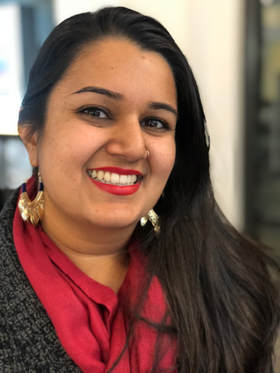
Ananya Vahal
"My mission as a writer is to empower people of color to write their own stories." @ananyavahal www.ananyavahal.com Bio I’m Ananya Vahal and I’m an Indian-American writer. I'm also the President of The Sid Foundation Inc., the writer/creator of Lung Girl Comics, and writer/content editor here at Prime Vice Studios. I have an MFA in Writing. My genres include creative nonfiction, digital content creation, and comics. I like reading and writing funny stuff. Where are your from? I was born in New Delhi, India. I grew up all around the world and have been living in the Atlanta area for over 15 years. Where did you grow up? I grew up in New Delhi, India, Dubai, U.A.E., Charlotte, NC, and Kennesaw, GA. How did your experiences affect your writing? The purpose of my writing is to tell the stories that have been historically ignored or suppressed in our country. My purpose came about because of my experience growing up in a country where the only signs of existence of my culture were a funny accent and a smelly bowl of curry. I didn’t know any writers that looked like me growing up and no one was telling the stories of my family. I want little brown girls today to be able to see themselves in books, movies, and all forms of media because it was denied to me. You’ve created an original intellectual property: Lung Girl. How did this character & story come about? Lung Girl came about because of a necessity on many levels. In 2014, my brother Sid died due to complications from his double lung transplant. My parents and I wanted to start a charity in his name to help other people going through the same situation. We establishedThe Sid Foundation in 2015 to raise funds and awareness for lung transplant research and assist lung transplant patients with funding and resources. I always knew The Sid Foundation would have a heavy art aspect to it because Sid was an artist and an avid comic book reader. I also found that lung transplant was a complex and often gruesome topic to talk about with people in the community. The best way to tackle this issue was to create a comic book character who could represent the nonprofit and help us tell our story. Therefore, Lung Girl was born. Lung Girl is a twelve-year-old Indian superhero who fights bad guys and lung health issues in her city. She has super lung powers which give her super strength and allow her to fight. She makes the perfect mascot for The Sid Foundation and helps us attract an audience that we normally would have missed. Available for purchase now. Click on pics.You have published two Lung Girl comics. How was that experience? The Lung Girl comics are published annually through The Sid Foundation. It has been an interesting experience. First, I had to raise funds for the project. Then, I learned how to write comic book scripts. I have an MFA in writing, but they don’t teach you how to write comic book scripts in a writing program, so I had to learn the process of turning my story into panels and pages. Finally, I hired a sequential artist to illustrate it. That process took a couple of months. I have been working in-house with Prime Vice Studios since the second issue published in 2017. Once the comic book was fully illustrated, I sent it to the print shop. I also uploaded it on Amazon for a digital version. Also, before I got them printed or turned into a digital comic, I had to purchase an ISBN number for them and get a copyright on them, so they could be protected. It’s a process that takes time, effort, and constant learning which is why we only produce one comic a year for the time being. Once I have more staff and more funding, we plan to publish more comics annually. You have recently graduated with your MFA in Writing. What drove you to pursue a Masters degree? I graduated with my MFA in writing from SCAD in June 2018. I have been writing since I was nine years old. I picked up writing as soon as my family moved to the United States. It was my way of making sense of my new life in a completely new country. I wrote journal entries, poems, and songs until I was in high school. However, since I didn’t know any writers in real life, especially ones that looked like me, I didn’t know that it was a profession I could pursue. For some reason, I couldn’t stay away from writing. Once I got to college, I tried several different majors before settling into English with a minor in Spanish. I graduated from the University of Georgia in 2010 with my bachelor’s degree. Even with an English degree, I didn’t know what I should do as a profession. The only options I was exposed to were Law School or Journalism and I didn’t find myself drawn to either one. I decided to take a break after graduating to figure things out and during that time I took the GRE and the LSAT so I could keep my options open for grad school. During my break year, my life took a complete turn when my brother became ill and was hospitalized. I spent almost a year in the hospital with my brother as he fought for his life and received a double lung transplant. After that, I became interested in the health care industry, specifically, physical therapy. So I changed my course and began pursuing physical therapy. After about two and a half years of working in physical therapy and applying to schools, we got a call that my brother was hospitalized again. This time he didn’t survive. After my brother’s death, I once again evaluated my course in life and after making peace with the fact that I was not getting into physical therapy school, I decided to go back to my original calling, writing. I definitely took the long and winding road. I had a lot of life experience under my belt to write about. I began researching the writing programs at several universities. Once I was introduced to SCAD, I decided that was the program for me. Their program focused on digital media and creative nonfiction. I learned ways to write my story effectively and share it with the world digitally. What type of stories do you like to write about? My mission as a writer is to empower people of color to write their own stories. Today, there are more stories published about people of color than by people of color. This means that we are being written about in ways that we do not control. We are being written about from the White perspective which often includes stereotypes and oppressive narratives. We need to control our own narrative. I think words are the most powerful tool against oppression. So, to make a long answer short, I write my stories. Stories that are highly underrepresented in the literary world and in today’s media. Stories about what it’s like to be a South Asian immigrant growing up and living in the United States. Stories about my family and my culture. #browngirlwrites #ownyournarrative Top 5 favorite writers. Roxanne Gay, Scaachi Koul, Issa Rae, Lilly Singh, and Sherman Alexie Favorite comic characters. Obviously, I love the new Ms. Marvel (representing the Desis), Black Panther (duh), Batman (he’s always been my favorite superhero), and Lung Girl! (yup, that’s a plug). Top 5 favorite comics & graphic novels. The new Ms. Marvel series, Bitch Planet by Kelly Sue DeConnick, Avatar: The Last Airbender series, Tales for La Vida: A Latinx Comics Anthology, and Saint Love City Funk: Boogie Down Blues.
Saint Love City Funk: Boogie Down Blues
What type of work are you interested in doing? Now? In the future? I am already doing the type of work I want to do which is write, build community, and educate. I hope to continue doing this work at a larger scale in the future. How can others find or purchase your work? Website, social media link, etc. You can find my work, my services, and my #browngirlwrites blog on www.ananyavahal.com. Twitter and Instagram: @ananyavahal Facebook: Ananya Vahal Medium: Ananya Vahal Works Available by Ananya Vahal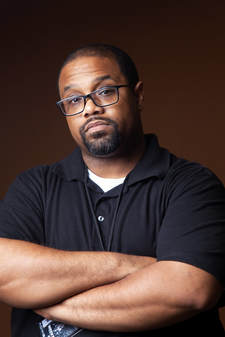
Robert K. Jeffrey
"I love creating these worlds that people can get lost in, just like I did as a kid growing up whenever I picked up a book." @robertk.jeffrey www.robertkjeffrey.com Bio A freelance writer with over 13 years of experience, Robert was chosen along with 5 other writers (out of more than a thousand applicants,) to take part in the 2017 DC Comics Writers Workshop. He’s the creator/ writer of the Glyph Comics Award nominated/ winning comic book series Route 3, Editor In Chief of BlackSci-Fi.com, has contributed to such anthologies like Dark Universe: Bright Empire, and is co-writer of the Glyph Comics Award nominated Radio Free Amerika. His client work includes work done for the Centers for Disease Control and Nitto Tires, and he currently co-hosts the New Wakanda podcast.
Where are you from?
I’m originally from the southside of Chicago. Where did you grow up? We moved around a bit when I was growing up. So I’ve actually lived in California (Los Angeles, Pasadena), Chicago, and now Atlanta. I’ve been in Georgia the longest and love it down here. How did your experiences affect your stories/ writing? As a kid who loved things like Star Trek, Batman, X-Men, Spiderman, Back To The Future, Hook, etc I began to notice a pattern. Though folks who looked like me were found in a lot of these fantastical stories, we were often not at the forefront. I had a problem with that and continue to even now. I was surrounded by no shortage of black people who took charge in their own stories on a day by day basis. Sure, they weren’t going out and leaping from rooftops to fight crime, or trekking the stars, seeking new life and new civilizations. The point was, they were handling their ‘ish, and weren’t being relegated to sidekick/ support status, or the comic relief. I told myself that wasn’t going to be the case in the stories that I wrote, that featured people who looked like me. Though I pride myself on being able to write just about anything and anyone, when it comes to focusing on characters of color I like to make them the power players in these larger than life stories that I like to tell. Its worked out so far, so I’ll keep doing it. ? You have been working with DC with their writing program. How has been that experience? The 2017 DC Writers Workshop was a great experience. Having a chance to learn from an industry legend like Scott Snyder was an experience that I’ll never forget, and the information I took from the workshop has become crucial in helping my growth as a writer. I also learned A LOT from my fellow workshop participants, and I’ve seen development in my scripts since doing the workshop. What type of stories do you like to make comics about? Where to begin? Lol. I write whatever gets me hyped as a creator. I’m kind of selfish in that when I start brainstorming an idea for a script that I focus on things that will keep me entertained and connected to. I try to do that when seeking out client work. So, my interests in terms of stories that I like to make comics about vary across the board. Route 3 is a coming of age super heroic, espionage thriller. Mine to Avenge: The Book of Layla is a cyber punk/ action horror series. RET: CON is an Afrofuturist time traveling adventure. To say my interests in what I like to create run a wide a gamut is an understatement. The same goes for any client work. I pride myself on being a varied hired gun when it comes to writing for prospective employers. You can’t limit yourself as a writer. You just can’t. You miss out on countless opportunities like that, and since my goal is to eventually do this full time, I keep myself open to a variety of different things to write about.
Whats your process? Elaborate on how you work through your projects. How do you break up your time for your projects at different stages?
I usually begin with brainstorming, then moving to outlining. I find that unless I have a specific set of steps to follow in building my story, my mind wanders. Brainstorming can begin with a simple kernel of an idea, which I then build into something more. I try to follow the tried and true model of establishing your “Set Up, Conflict, & Resolution” for the story. It simplifies things in the long run, in terms of giving me a template of sorts to follow. Now, not to say that this template might be switched around for the sake of storytelling, but to have a basic story skeleton of sorts to follow is crucial for me to follow. After that I’ll begin writing a first draft, just to get the thoughts down on paper. Storytelling is key here, as I’m partly putting together a script that the artist is going to enjoy drawing, just as much as whoever might buy the book will enjoy reading. I try not to over direct when it comes to panel descriptions but provide just enough direction where both I as the writer and the artist know how the page is going to flow. I find that writing dialogue is a favorite part of the process of mine as it helps me to feel out the various characters in a scene. So, after writing the dialogue, panel descriptions, location captions, thought captions, etc. it all come together to move the story forward. The first draft is usually followed by a second and third draft where I’m fine tuning everything within the script. After that, it’s off to my editor, comes back to me for another pass, then it goes to the art team. What do you recommend to aspiring writers that you wish you had known much earlier? What would you tell yourself 20 years ago? Life is a fickle beast, and it will complicate things every chance that it gets. When that happens, just keep pushing forward. Also, stay out of your head. Don’t worry about what everyone else is doing. Just don’t. And have more confidence in yourself. Keep learning as much as you can about writing, stay open to constructive criticism, don’t treat people horribly, and just do your best to be the best person you can be. Also, stay out of your head, and have more confidence in yourself. Did I say that already? ? What do you love best about writing comics? I love creating these worlds that people can get lost in, just like I did as a kid growing up whenever I picked up a book. To provide an escape, or an alternative to all the BS that surrounds us 24/7, that’s a blessing. What do you wish was different about the comics industry? I wish that the industry would realize that EVERY-FRIGGIN-ONE loves these books. Find ways to tap into that, and just build, and build, and build. And some publishers, more so than others have realized that. Continue to reflect the world that exists NOW, and your readership that exists NOW. Which books do you recommend writers should have in their reference library? Favorite instructional material? Jim Zub’s Tutorials for creating comics: http://www.jimzub.com/ Alan Moore’s Writing For Comics: Alan Moore Powers Scriptbook by Brian Michael Bendis & Michael Avon Oeming Writing for Comics & Graphic Novels with Peter David: Peter David Making Comics: Scott McCloud Understanding Comics: Scott McCloud The DC Comics Guide to Writing Comics: Dennis O’Neill Words For Pictures: Brian Michael Bendis
Top 5 favorite writers.
1. Dwayne McDuffie 2. Geoffrey Thorne 3. Octavia Butler 4. Greg Rucka 5. Brandon Thomas Favorite comic characters. 1. Static 2. Rocket 3. Synch 4. Invincible 5. Tara Chace 6. Storm 7. Spiderman 8. Woke AF’ Cyclops Top 5 favorite comics and graphic novels. 1. Static Shock: Rebirth of the Cool 2. New Frontier 3. Icon: A Heroes Welcome 3. Queen and Country: The Definitive Editions, Vol. 1-4 4. The Many Adventures of Miranda Mercury 5. Prodigal: Egg of First Light 6. Watchmen 7. Batman: The Long Halloween 8. Gotham Central: In The Line of Duty 9. Invincible: Ultimate Collection, Vol. 1 10. Noble Vol 1.: God Shots What type of work are you interested in doing? Now? In the future? I’m always interested in doing more comics work. I’m open to writing anything. I’m having a great time working for publishers like 133 Art and Evoluzione Publishing. I’d love to work for publishers like Lion Forge, Valiant, Boom! Studios, Dark Horse, IDW, etc. I’ve got a bucket list of licensed characters that I’d like to pitch for including characters/ franchises like Rocket (Milestone Media), Overwatch, Star Trek, The Orville, and heck even my favorite cult classic, Sliders. In addition to the comics work, I’m trying my hand at writing for table top gaming with New Agenda Publishing, and I’d really like to learn more about, and eventually jump into video game writing. Lastly, I’m going to get back into writing prose fiction by the end of this year, and am currently looking into getting my certification for technical writing. How can others find and purchase your work? Website: www.robertkjeffrey.com FB: robertk.jeffrey Twitter: @SYNCHRKJ Instagram: robertk.jeffrey 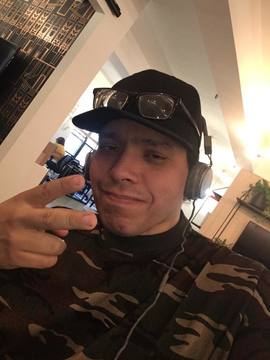
Rolo Ledesma
“You got to handle every line and page likes it's your best." @rolo_world www.curvesandbullets.com Bio Creator of the comic book series Curves and Bullets. Will Eisner & Russ Manning Award nominee. Comic book & storyboard artist. Owner of Rolo Wear. Son of world class Dominican painter Clara Ledesma. Where are you from? Born and raised in New York City Where did you grow up? Manhattan and Queens, New York also some time in Montreal, Quebec. How did your experiences affect your art? In my early years living in Queens then in Manhattan the graffiti and Hip Hop music molded my vision then the combination of all forms of animation and comic books from American to European helped shaped my style, creativity and coloring also watching mom doing her paintings. Your mother is Clara Ledesma. A very accomplished and phenomenal artist from the Dominican Republic. How has she and her work influenced you as an artist? As far as mom's art, its her discipline to complete what she started and her work ethic. She never failed a deadline. It's why her name was never tarnished here (In the United States), in Dominican Republic or Canada, etc. Her strong vibrant coloring influenced me too. I love using it in my art.
Learn more about Clara Ledesma:
https://en.wikipedia.org/wiki/Clara_Ledesma What type of stories do you like to make comics about? I mostly do action-adventure comics and children's books. Children books are fun- I get to draw in a whole other style that is much gentler and soft but still brings aspects of the way I do my comics such as angles, expressions, etc. Whats your process? Elaborate on how you work through your projects. How do you break up your time for your projects at different stages? I mostly draw my projects at night after I'm done drawing storyboards at ad agencies during the day, the peace and stillness of the evening helps. I put on my headphones put on my music and away I go! Most people don’t have the determination to do something and stick to it from start to finish. If you actually sit down and write your story, if you draw it out in panels, you put yourself several steps ahead. Set goals for yourself. Give yourself a few weeks or a few months to go over an idea, to do sketches of it in your sketchbook, to talk to friends about it. Once those weeks or months are over, you’ve got to move on to the actual writing and drawing it doesn't matter how scared you are time put the first line on the paper. Worst practices. What to avoid? Biggest waste of time? Biggest Novice mistakes? Common mistakes seen at pro level from artists. I a lot of times procrastinate, its normal we can't just turn on the switch and draw, etc ...but at that moment you need start looking at things that inspire you art, comics, music, film..and you will see how the flow will come back. Sometimes it shows in the art if you are not feeling the characters or the storyline (it happens to everyone from pros to newcomers), its ok but you got to handle every line and page likes its your best work, step back for a few and go back to it if that feeling occurs. Thats how I do it if it happens to me . We all have different methods- feel whats comfortable to you. Who should/ shouldn’t pursue a career in comics? To pursue a career in comics is not easy that's the first thing. If you have determination, the heart and end goal also working lotsa hours and from day or evening late hours to create something everlasting then jump right in its a beautiful thing creating comics. If you can't stick to deadlines and go through changes in the process that happen such as the changing of layouts or characters, the costumes, panel works, and story, etc and can't take critiques then comic books might not be a field for you. To newcomers, if you have that spark to create and love for illustrating start with a plan look at your inspirations. We all have inspirations, see the process and study layouts in you favorites books and study their style too imitation is ok to a certain extent then you need to create your own style- it will come as time moves on. What do you recommend to aspiring artists that you wish you had known much earlier? What would you advise yourself 20 years ago? Something I wish I had learned earlier is anatomy, it's super important , thats a must no matter what style you draw in (comic or manga style). I tried out to Marvel many moons ago and the submissions editor at that time Mr. Lewendowski told me, “ Your talent is raw but your muscle structure needs help.” He recommended Gray's Anatomy, a great book to use and Will Eisner's Comics and Sequential Art book ..two amazing books that helped me so much. What do you love best about making comics? What I love about making comics is to create new worlds, seeing the images in your head then putting them on paper and seeing the pages come alive basically and having a team of like minded people that write and also color your stories is very key in that process. Well me being independent so many years I love being a creator-owned illustrator and self publishing comic book creator. I can always have freedom to do and create anything I desire. I was nominated a few years ago for the honorable Wil Eisner /Russ Manning newcomer in the comic book industry award, that alone in itself was amazing for me. It was doing my art with a small indie comic book publisher here in NYC ..working with Seen, the graffiti legend among others that helped shaped the book with Brian Ferrara writing and Phetus, another graff legend that made that book possible. Its funny how that book I drew it in the classic Looney Tunes / Ralph Bashki style was nominated compared to my other traditional comic style. What do you wish was different about the comics industry? Many of the big houses are amazing but you are some what limited once you are hired.
Which books do you recommend artists should have in their reference library?
Books I recommend. I always have em on my self ... Draw Out the Story: Ten Secrets to Creating Your Own Comics Freehand Figure Drawing for Illustrators: Mastering the Art of Drawing from Memory Comics and Sequential Art: Principles and Practices from the Legendary Cartoonist
Favorite artists.
My favorite artists are mostly the legends I grew up with, met and became friends with (Something I never even thought would happen) like Jim Steranko and Jose Luis Garcia Lopez. I wish I would of met John Buscema. I love and admire the works of Alex Ross, Brian Bolland and Nick Manabat. Top 5 favorite comic characters. Why? Judge Dredd, the gritty and amazing art and storylines. Batman The Dark Knight, what is else there to say ..lol 75 years strong. Spider Woman, the original version Marie Severin created, an amazing character. Cable, hard nosed mutant and awesome character with multi-levels. Deathblow by Jim Lee kinda obscure but i loved the storyline and art technique and Cybernary Nick Manabat's finest beautiful dark and gritty work and sadly his only work due to his passing Top 5 favorite comics and graphic novels? Judge Dredd meets Batman vol. 1 DC vs Marvel Crossovers graphic novel Tintin Objectif Lune Asterix Vs The Galles Milo Manara's Gullivera: Oversized Deluxe What type of work are you interested in doing? I'm pretty happy with what I'm doing now...storyboarding and comic books. How can others find your work? You can find me at: www.curvesandbullets.com www.instagram.com/rolo_world @rolo_world www.facebook.com/rololedesmanyc www.instagram.com/curvesandbullets @curvesandbullets
The Creators on the Come Up interview series highlights noteworthy emerging artists in the comics field.
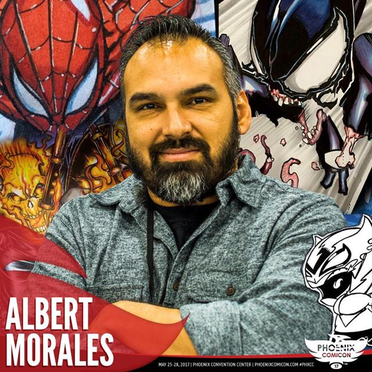
Albert Morales
"one instance where I was not really true to myself, and when it was all over I opted to never "kiss butt" and sell myself short again, and I haven’t." @angryroosterstudios https://angryroosterstudios.weebly.com
Bio:
Albert Morales is the lead dropping cartoonist/comic book artist behind ANGRY ROOSTER STUDIOS. He is currently working on the completion of his script for prominent publisher HUMANOIDS. His notable work to date includes art for and working with FLEER ULTRA X-MEN, FLEER ULTRA SPIDER-MAN, MARVEL PREMIER 2017, SPIDER-MAN: HOMECOMING, U-HAUL INTERNATIONAL, GAME ON EXPO. His cartoon strip SUPER IMPACTO VS. THE WORLD has been acquired by the BILLY IRELAND CARTOON ART MUSEUM at OHIO STATE UNIVERSITY. Albert is also a proud contributor to the LATINX project: TALES from LA VIDA, which features multiple prominent and up and coming cartoonists. Questions: Where are your from? Where did you grow up? I am was born and raised in Corpus Christi, Texas but now live in Scottsdale, AZ. How did your experiences affect your art? I don't know that some of the experiences I've had in life have affected my art often. My mind tends to get distracted in regards to directions. So I tend to go with that flow more than anything. There was one experience in particular that affected me greatly. It was one instance where I was not really true to myself, and when it was all over I opted to never "kiss butt" and sell myself short again, and I haven't. i'm more direct now, possibly a bit gruff, but it tends to get the job done more often than not. You received a publishing opportunity. How has been that experience? I’ve recently had a publishing opportunity with my fellow Latin X’ers (Tales From La Vida). That was AMAZING! I think a book like that really shows the world what has driven us to become who we are or what lead us there. What type of stories do you like to make comics about? That's a hard one. Again I tend to jump around from fine art to comics to comic strips. Story wise...I have Super Impacto who I've never been able to tackle just the right story for him...possibly cause I'm so attached to him (in more ways than one). Comic strip wise, he does tend to have my attitude of having to conquer everything in front of him. He almost takes any minute threat to a whole new level, hahahaha. In comic book form..... I like action/ mystery. My Annihilation Jones project has something I'm after- that 90's excitement of MTV (when they still played music), when X-Force and Image Comics were coming out. Whats your process? How do you break up your time for your projects at different stages? I wish I could stay more focused that's the truth. Again, I tend to jump around, but life also has a huge impact on what it is I do at the time. I have to treat art like a business. I think that's just the way I am. So freelancing leaves little to no time to work on creative projects of my own. It's a bit of struggle a lot of times. Yes you are getting paid, and people are requesting your work, However you are missing out on bringing a new creation into the world that is yours. I will say though when I am working on creator owned or any projects I tend to look to see how many mediums the assignment/ book can fit into. That's generally the key to how I work or how I choose projects. What do you recommend to aspiring artists that you wish you had known much earlier? To a very younger me I would have told to practice panel layouts and tell a story- don't focus on pin-ups. Don't cut yourself short. If you know the angles or see them, take the opportunity and run with it as much as possible. What do you love best about making comics? The fans reaction to your work, especially in person. If you another creator to really digs your work then that's something special too. It opens up new doors and conversations that create new friendships. I think Ohio State University and SOL-CON did that for me last year (2017) which was great. What do you wish was different about the comics industry? I wish there was more room for independent books. I wish cons and the shelves had more creator owned books. I think that fresh blood is needed. I'd like to join in and help kick down the door or at least open it up just a little more. I like making an IMPACT, it's what I do. Which books do you recommend artists should have in their reference library? Favorite instructional material? That's a tough one because everyone has different choices or materials they like. Movies let me do that.
Top 5 Favorite Artists?
Top Favorite Comic characters?
Top 5 Favorite comics, graphic novels?
1. Thor by J. Michael Straczynski 2. Ghost Rider 3. Super Sons - Jorge Jimenez stuff 4. Sam and Twitch 5. Batman- the WHITE KNIGHT What type of work are you interested in doing? Now? In the future? I'd like to work more on my creator owned books. I have Super Impacto & Annihilation Jones underway for 2018. Currently I am cleaning up a script for Humanoids, a graphic novel of my own device. I'd also like to do a run on a series- Ghost Rider specifically. A short miniseries would be awesome. How can others find/ purchase your work? They can reach out to me on facebook or Instagram. https://www.facebook.com/albert.morales.5477 https://www.instagram.com/angryroosterstudios/
The Creators on the Come Up interview series highlights noteworthy emerging artists in the comics field.
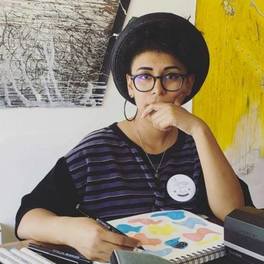
Breena Nuñez "Know that your time and imagination are in charge of reshaping culture and the way we see the world. " @Breenache https://www.etsy.com/shop/breenache Bio: Breena Nuñez is an Afrochapinaca weirdo from the Bay Area who likes to make comics, teach comics, and read comics. Questions: Where are your from? I usually say I'm from the Bay Area since my family and I moved around a lot during the 90's. My family first rooted themselves in San Francisco's Mission District after migrating from Guatemala and El Salvador. But now Oakland has been my new home for a little while now. Where did you grow up? Mostly South San Francisco and San Bruno, which is all South from San Francisco. How did your experiences affect your art? My personal experiences with being a nerdy Central American kid influences my drive to tell stories through comics, because I feel like there was still an unspoken wish I had to read more stories about what it meant to be Central American. I was also a very quiet and self-conscious child when it came to speaking up for myself because I was misdiagnosed with autism and was a part of the Special Education program for so many years. It really made me feel like I wasn't intelligent enough communicate with others, and I never questioned this system or my diagnosis because these "grown-ups" knew better, right? Well, the only two things that validated myself were comics and music. Those two forms of art made me feel like there was a life I could build for myself and to fully express my feelings because I'm not a very outspoken person, but I internalize so much that I need time to find a way to put it all in a comic or in a little song. You are also a musician. How does being multitalented & skilled affect your creativity and process? It feels like you are engaging with different parts of your brain and your body when you switch from playing music to making comics. It's actually pretty exciting that I don't have to just express myself in one medium because I crave excitement and joy in different forms of art. I feel like music at one point heavily influenced the way I experimented with my artwork whenever I studied Sun-Ra and Pharaoh Sanders, it really brought me to realize that they were really ahead of their time in Afrofuturism. Nowadays Afrofuturism is so present in comics and I feel like we owe it to black musicians for influencing the way we write and illustrate sci-fi comics. As far as carrying these two talents I still keep them separate since they both require different types of energy, and right now comics is getting a lot more attention while I sadly put music in a corner. Haha! But I think after graduate school I hope to make more time to play and experiment with these two mediums. Is your music also a component/ dimension of your comics? Hhmm, I don't think it really does at this moment. But there was a bigger relationship between music and comics when I made a short series of illustrations combining my love for music and comics titled Somos El Futuro. I honestly hope to get back into something like that because it drives me to study music more and to see how I can fuse these two pieces of myself together. You are currently a graduate student. What drove you to pursue a Masters degree? It's definitely because I craved to be in a place of learning where the focus is comics. At one point that felt silly of me to dream of a graduate program like that because we're so close to Silicon Valley and there's this pressure to work in big tech as some kind of graphic designer. But I knew deep down that I was not going to be happy in a tech company, I also just don't have the brain capacity to invest in new trends and new ways of designing stuff because I'd rather researching cartooning styles by watching Cartoon Network and reading zines made by my friends! At one point I thought about getting a Masters in Teaching Art since I want to be accessible to young black and brown kids who love comics. But something told me to say "no" to applying for teaching credentials or to a Masters in Teaching since I probably would not have enough time to work on myself as a cartoonist. It basically came down to me wanting to be more selfish with my time and to fully immerse myself in something that I am deeply passionate about. And I feel like I've found the right program where I'm still connected to my community while also learning some valuable lessons that I can pass onto kids who dream of being comic book artists. What type of stories do you like to make comics about? I like to make comics based off of stories I like to read which are autobiographical and humorous. My stories these days are about my reactions to racism I've encountered as a youth, anti-blackness in the Latino community, reclaiming blackness, and venting about anti-Central American sentiments from the Trump administration. Whats your process? Elaborate on how you work through your projects. How do you break up your time for your projects at different stages? For my shorter comics I sketch them out in four panels. I doodle an image first and then script out what I want to say in it before moving onto the next panel. I still struggle with pushing these little comics at a faster rate because I'm such a pensive person that I sometimes take a long time to write down something that I feel satisfied with. But when the mini comic is done I ink and letter everything by hand, I'll scan it and then add a color swatch through Photoshop. These would take me about a couple of hours or so. But for my thesis (which I want to turn into a graphic novel) has required a lot more writing and editing at the beginning. I took about one semester to finish editing the first chapter before moving onto my thumbnails. It was outside of my comfort zone but I appreciate scripting everything out because it gives me a better idea how the visuals are going to look like in my thumbs. Thumbnailing different scenes takes me about two weeks to feel good about them before moving onto the next scene. I'm also like juggling other commissions and tabling gigs so sometimes I have to prioritize other deadlines than my personal stuff, so my process is always in flux depending how busy life gets. What do you recommend to aspiring artists that you wish you had known much earlier? You, yourself as an artist and writer are valuable assets to society. We still live in a world that undervalues us as creative people of color, but that should not stop you from following your passion. Learn to be gentle with yourself when you make a mistake, it is all a part of the process too. Make friends with other artists and writers, they will advocate for you even when you feel alone. Know that your time and imagination are in charge of reshaping culture and the way we see the world. What do you love best about making comics? I love that comics are an accessible form of art and literature. You don't need to throw down so much money to access culture through an expensive museum when you can get comics that is relatively affordable through your local shop or a zine fest. Owning a comic actually feels like holding a museum in your hand wherever you go. What do you wish was different about the comics industry? I wish more publishing houses were more open to publishing stories that are by folks of color and didn't have to question whether or not their story is "going to make sense" to their fanbase. Language can be an issue people run into because sometimes folks fear that they are not going to understand the story. Well, as folks of color we're always in a place of not being understood because of who we are. But we need comics that have Spanglish, Tagalog, Vietnamese, etc. because that's another part of the history of the U.S. we don't always get to read about. Which books do you recommend artists should have in their reference library? Favorite instructional material? Hhhmmm, some artists that I've been studying for inspiration on cartooning style are Ben Passmore, Jeremy Sorese, Lamar Abrams, Liz Suburbia, and Clément Oubrerie. Scott McCloud's How To Make Comics have some really good tips on paneling and layout. Top 5 Favorite Artists? Jaime Hernandez, Liz Suburbia, Adrian Tomine, Jillian Tamaki, and Stephanie Gutierrez. Top Favorite Comic characters? Damn, these questions are getting harder, hahaha!! Hhmmm... definitely Maggie and Hopey from Love & Rockets, Henry from Catboy, then Aya and her hairstylist friend who dresses like Michael Jackson from Aya. Top 5 Favorite comics, graphic novels? 5+ I just started this biography of Josephine Baker, Aya: Love in Yop City, Uncomfortably Happily, Love & Rockets, The Interview, Bottomless Belly Button, and Killing and Dying. What type of work are you interested in doing? Now? In the future? What I'm interested in doing now is creating and experimenting with my comics while I'm still in grad school. My thesis is going to be a memoir comic that speaks about my experience of trying to understand what Central Americanism is and what reclaiming Afrolatinidad means to me. I currently am open to visiting classes to facilitate zine/comic book workshops to black and brown youth since I remember that educators of color have always made an impact in the way I value myself as an artist. In the near future I'm going to also push myself to make some comic strips about being an awkward Central American who doesn't always feel like they "fit in" to things that are expected of me like being mad fluent in Spanish, knowing how to eat pupusas properly, etc. Another comic I'm hoping to get back into is going to be a series called Dear Sentida and it's pretty much going to also poke fun at awkwardness while using cute animal character to talk about queerness and gender nonconforming identity. How can others find/ purchase your work? Website, social media link, etc Yeah, folks can definitely purchase my work through my Etsy store: https://www.etsy.com/shop/breenache But in case people don't have an Etsy account they can always email me at [email protected] to purchase and inquire about commissions. I'm also pretty active on Instagram and it's my favorite platform to meet and be inspired by other artists @breenache. |
Archives
November 2023
Categories
All
|
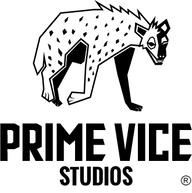
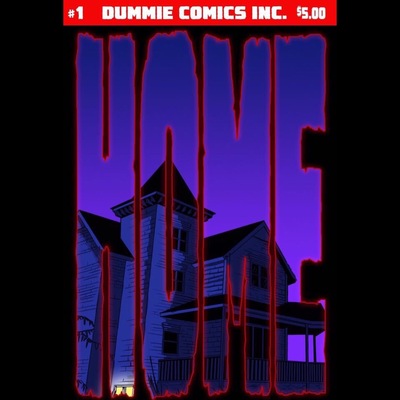
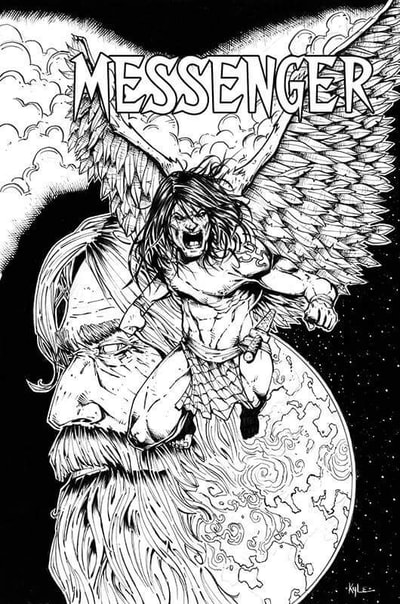
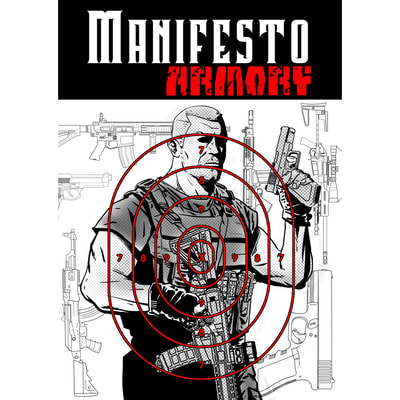
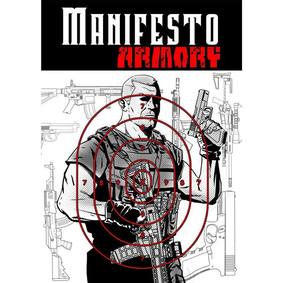
























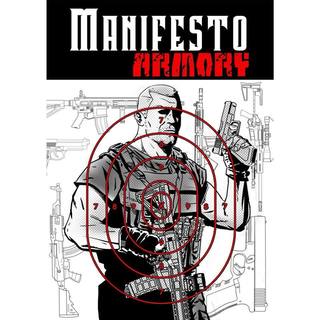
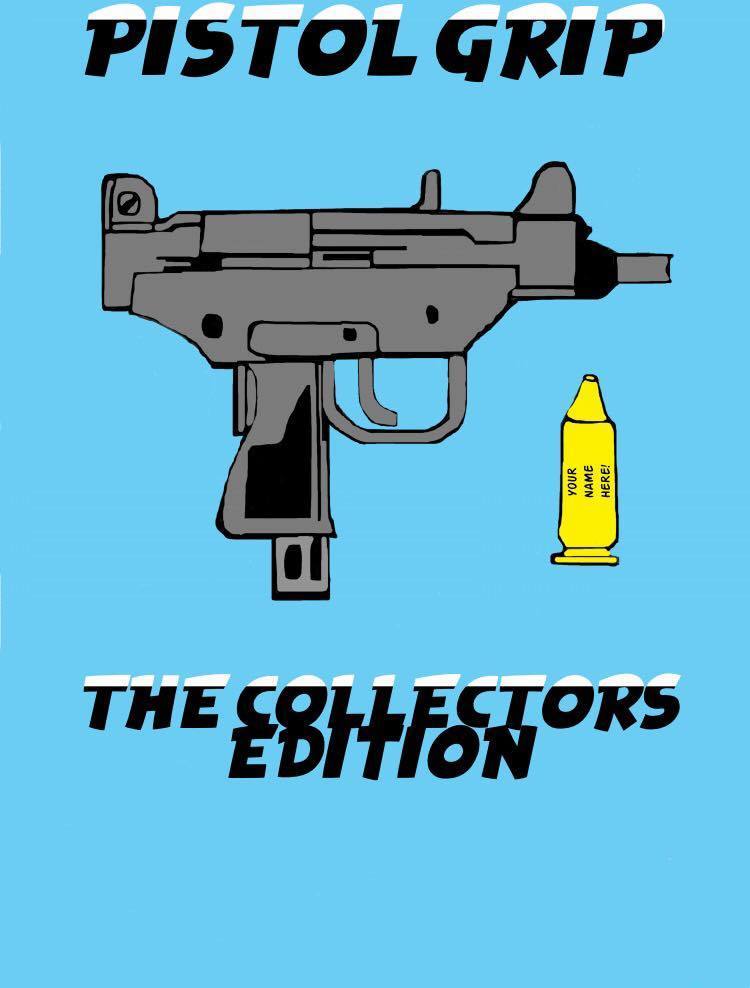
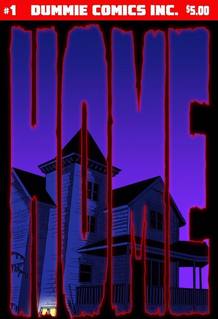
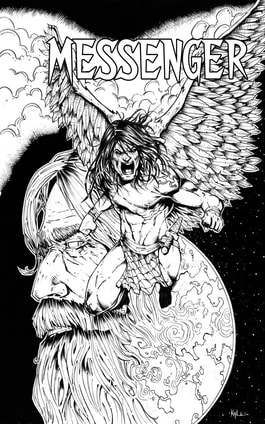
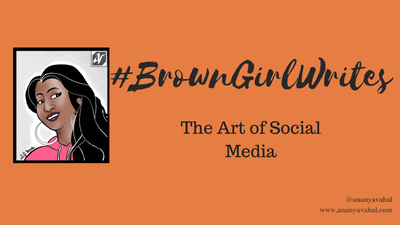
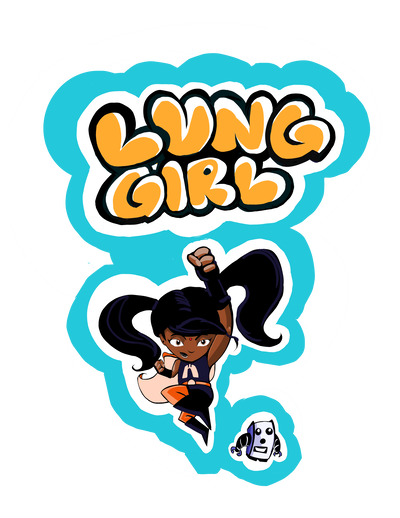


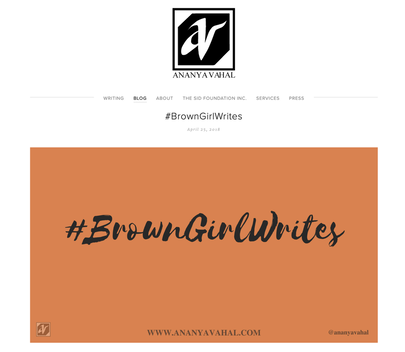












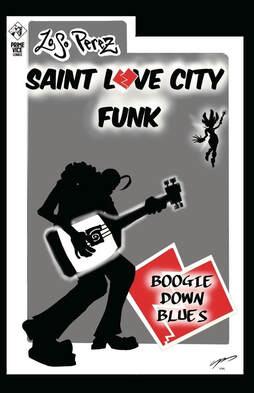
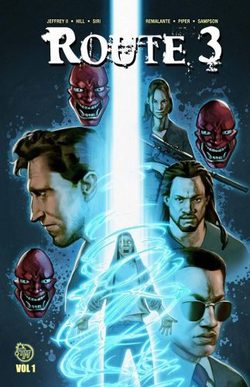
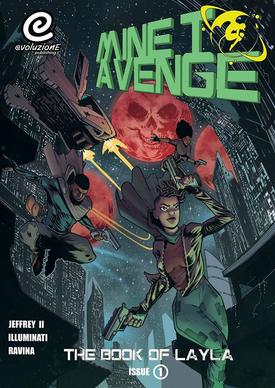
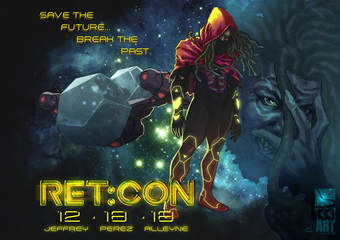
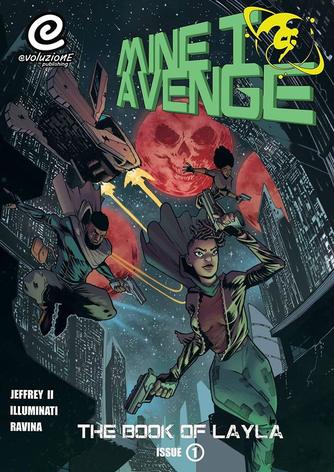
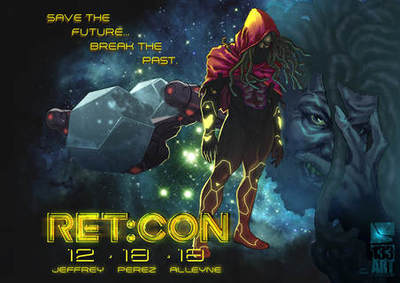
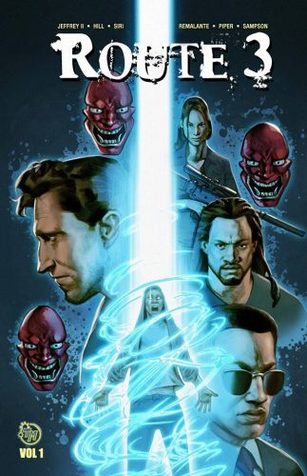


























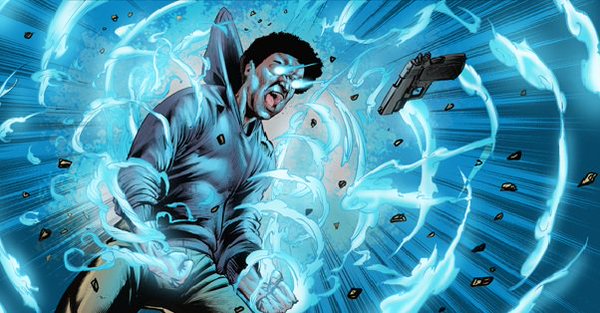
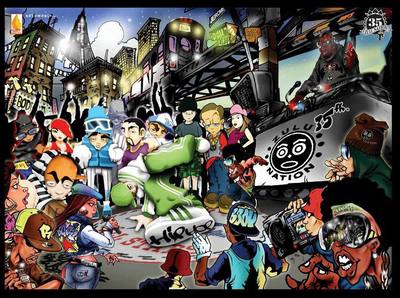
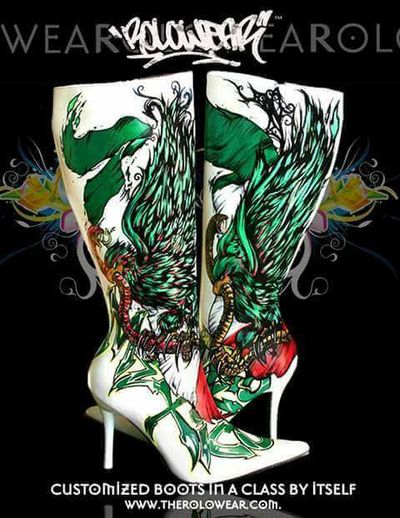
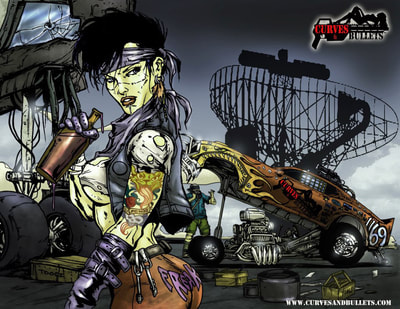
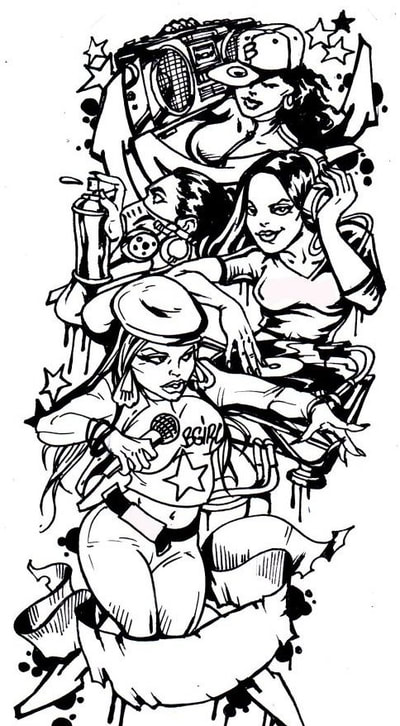
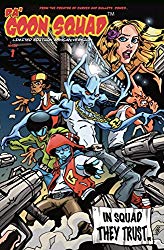
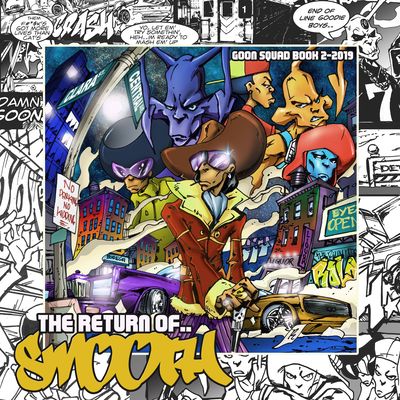
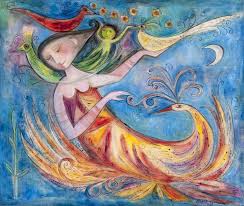
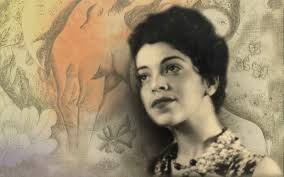
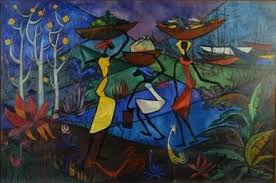




















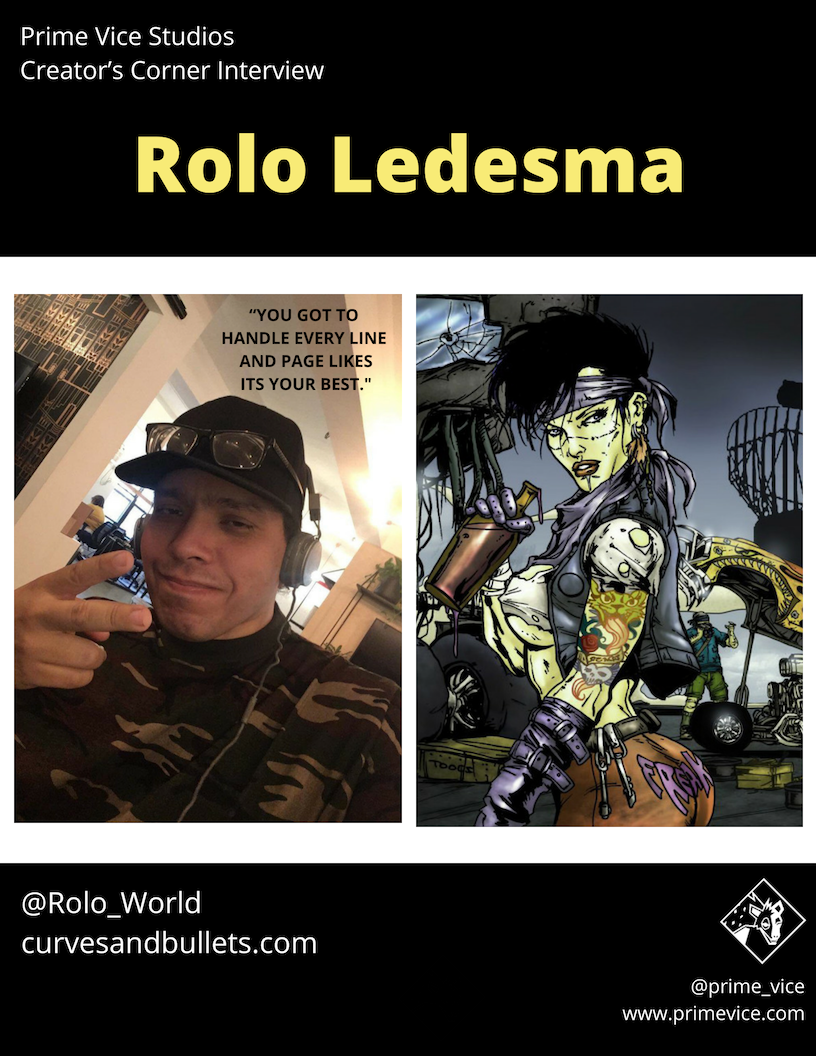

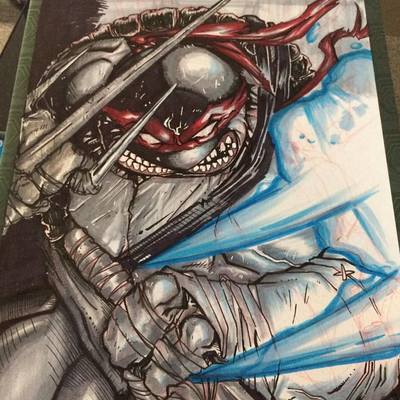
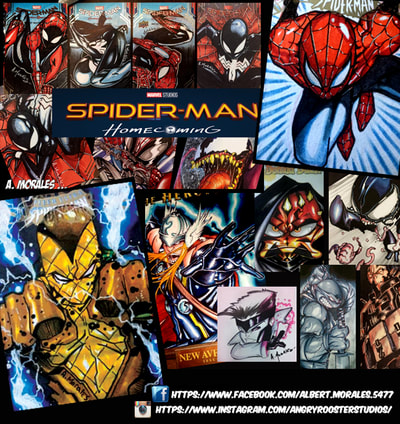
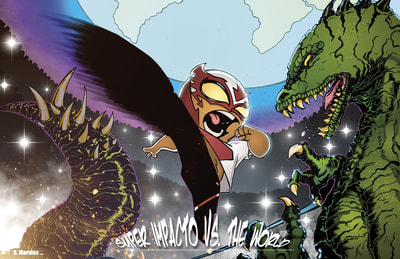





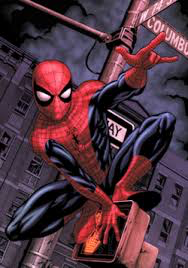
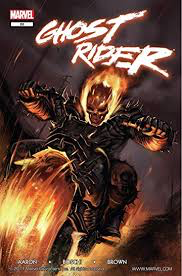
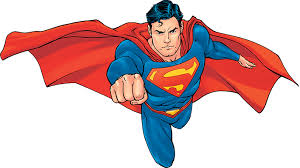





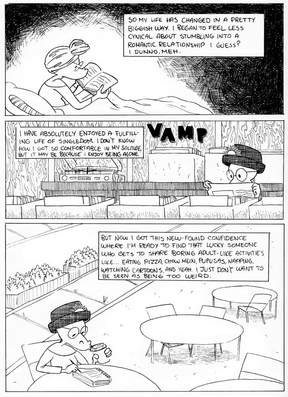
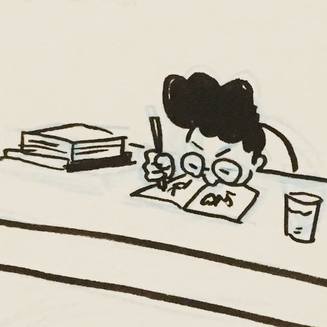
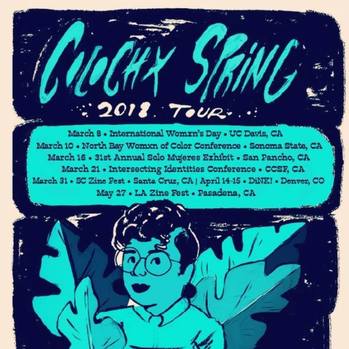

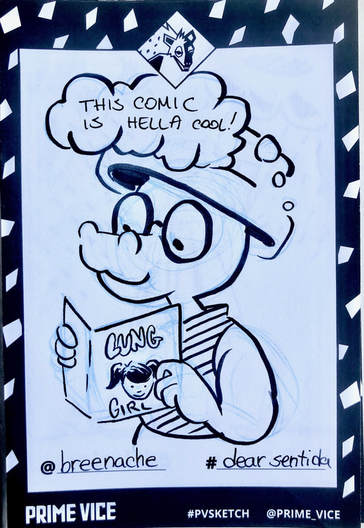
 RSS Feed
RSS Feed
